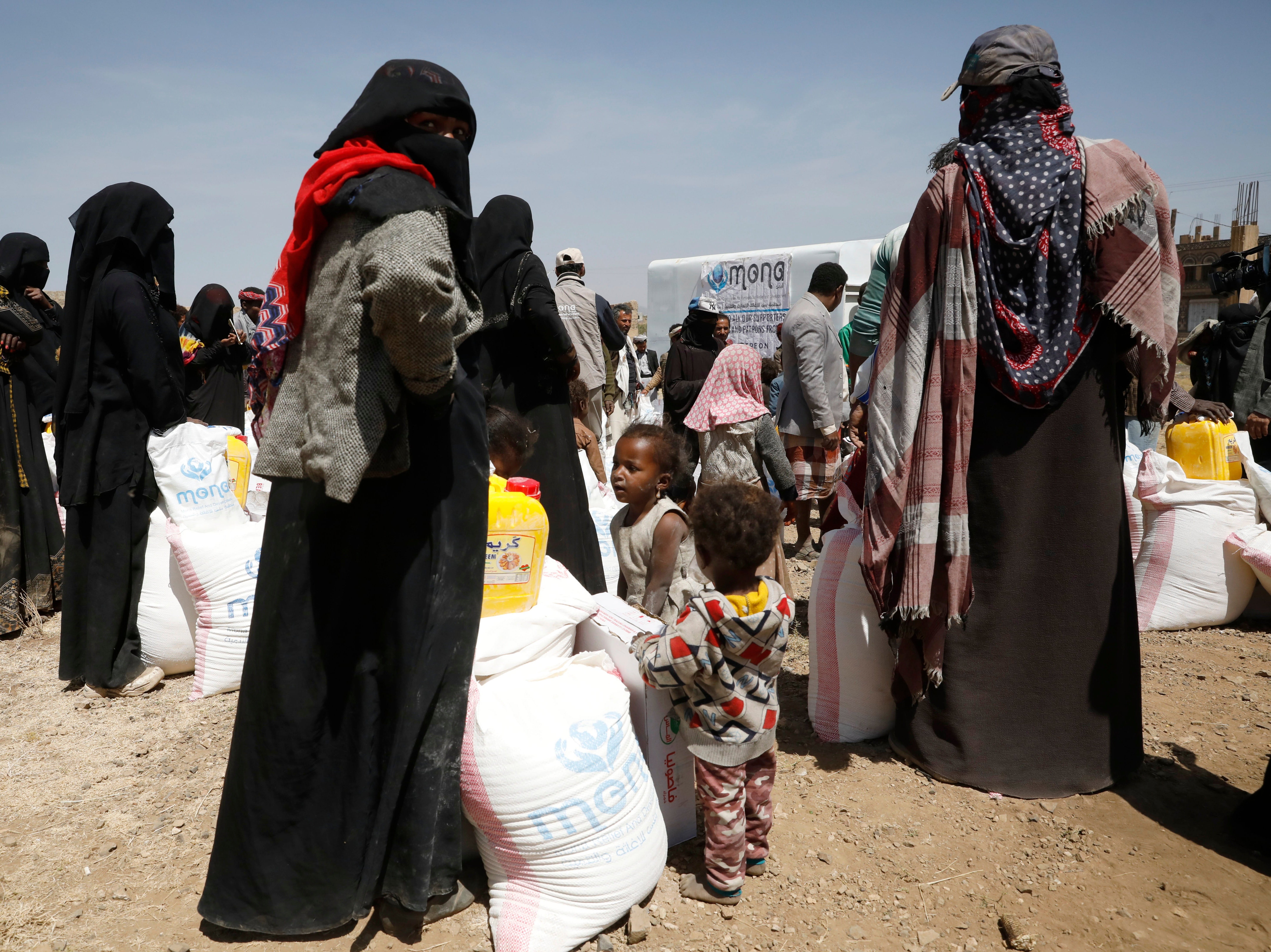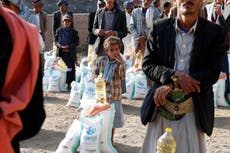If Britain slashes its aid budget to Yemen, we will all pay a grave price
Editorial: Allowing a group such as al-Qaeda to be established as a de facto government in the rubble is hardly in the interests of the west

It was never going to be possible to cut the UK’s aid budget painlessly, and some of the worst fears about this cruel policy may soon be realised. On Monday, the United Nations hosted a high-level pledging event to assist the Yemeni people and protect them from starvation.
According to the UN, around two-thirds of the Yemeni people rely on humanitarian assistance for survival; some 4 million have been forced from their homes, and some 50,000 are already starving in famine-like conditions.
In all, 16 million are at risk of hunger this year – with the most acute cases in conflict-affected areas. The UN secretary-general, Antonio Guterres, says the severity of the suffering is “impossible to overstate”.
Yet the UK may not rise to this moral challenge. Figures such as Andrew Mitchell, a former international development secretary, and Tobias Ellwood, chair of the Defence Committee, are presently warning about the truly dire consequences of a reduction in UK aid to Yemen.
The civil war there is causing suffering on a biblical scale. There is talk of one of the worst famines in history being visited upon that pitiably poor land. In reality, that civil war is another proxy war between America and Saudi Arabia on one side, and Iran on the other.
Britain, as a major arms supplier to Saudi Arabia (and the United Arab Emirates, now retired from the conflict) is hardly blameless, notwithstanding some weak diplomatic protests. As Mitchell says, Britain has been “complicit” in the torture of Yemen, and cutting aid would be a mistake: “We cannot wash our hands of that. The military campaign in Yemen has led to the destruction of infrastructure. It’s led to the famine conditions which exist there now.”
Ellwood reminds us that allowing a group such as al-Qaeda to be established as a de facto government in the rubble is hardly in the interests of the west. The experience of Afghanistan should have taught the British that hard lesson. Cutting off aid and leaving places such as Afghanistan or Yemen to their fates is not in the self-interest of the UK or its allies.
The international aid budget deployed in such countries is not merely a humanitarian imperative in the face of real, undeniable suffering; but one small means by which terror and extremism may be pushed back.
And yet the rumour is that aid to Yemen will be chopped in half, even as Covid-19 is adding to the miseries of the Yemeni people. If the funds to Yemen were maintained, it would mean even deeper cuts elsewhere in the UK Budget.
Someone will have to pay the price for the British government’s political gesture. The effects of Covid and Brexit on life in Britain, regrettable as they have been, cannot stand much comparison with grinding poverty and war in much of the developing world.
If nothing else, the more such peoples suffer from poverty and war, the more of their fittest young people will be forced to become refugees in the west. They end up in dinghies in the English Channel, because the rich west will not help them stay in countries such as Syria.
Now that the aid budget has been cut and repurposed, and the Department for International Development (DFID) abolished, it might be reassuring to think that the British diplomatic service is working to end the war in Yemen.
In reality, there is little the rebadged Foreign, Commonwealth & Development Office can do, other than support whatever the US State Department judges best. Under Joe Biden, this judgement seems to be improving; but in places such as Yemen, it was not British diplomatic or economic clout that counted, but the expertise DFID and the aid agencies could bring to bear on humanitarian emergencies.
The danger, now, is that even that will be lost. The consequences of that will not be confined to the Gulf region.
Join our commenting forum
Join thought-provoking conversations, follow other Independent readers and see their replies
Comments


Bookmark popover
Removed from bookmarks